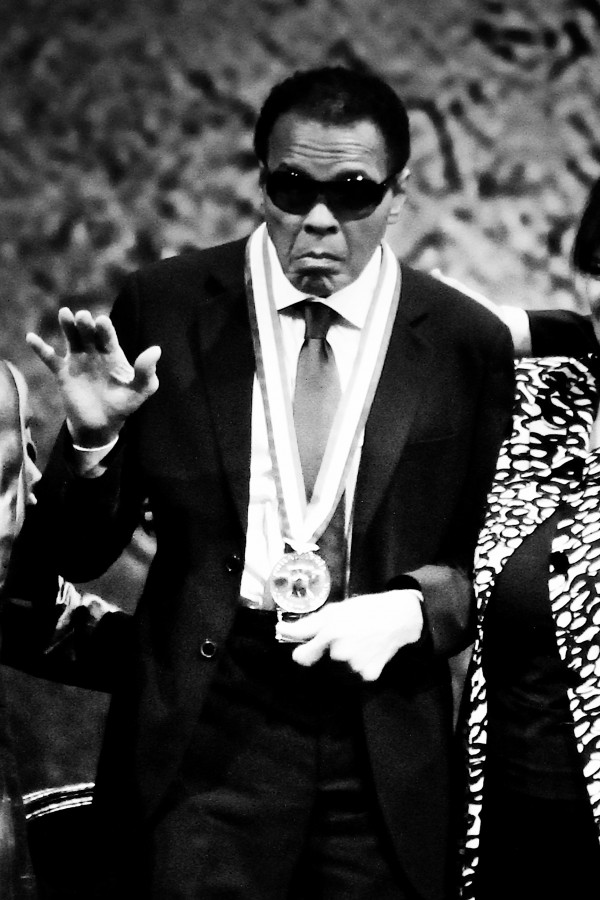Muhammad Ali, National Constitution Center, last night by PETE TROSHAK
Forget boxing, Muhammad Ali is one of the most significant cultural figures of the 20th Century. He is more than just ‘the greatest’ boxer the sport has ever known, he is a cultural game-changer. His words and actions triggered a seismic shift in public opinion about race and religion and war throughout this country and, for that matter, the world. Some would argue that he doesn’t deserve such an honor. That he was too brash, too arrogant, too divisive. That he was unpatriotic because he refused to serve in Vietnam. His unwillingness to bend or surrender his constitutional rights to freedom of speech and freedom of religion cost him three and a half prime years of his boxing career. It also made him a transformational figure that inspired countless people and sparked change during one of the most tumultuous times in this American life.
Besides being the most feared and admired competitor in any arena ever, he was also funny as hell. He raised braggadocio to the realm of poetry and backed up his words with his fists. In other words, he is our kind of guy so it was only fitting that last night Ali received the 2012 Liberty Medal in a short but emotional ceremony at the National Constitution Center. Ali received tributes from numerous dignitaries and athletes, but the two most moving tributes were from former NBA star and Sixer Dikembe Mutombo who described how Ali’s bouts in the Congo inspired him to rise above the strife in his country and find his way to America and Joe Louis Barrow II, the son of boxing legend Joe Louis, who told a story of how Ali comforted him with love and a magic trick on the day he buried his father.
Ali was still most of the ceremony, his body battered from years of punishment in the ring, plus the potent one-two punch of Parkinson’s disease and the ravages of time. He was flanked by his doting wife and sister-in-law and received the Liberty Medal from his daughter Laila – a retired boxing champion like her father. He mutely observed the event from behind a pair of dark glasses. He didn’t need to say anything. His actions still speak louder than words. Hell, louder than bombs. And in the final judgement of history, he’ll always float like a butterfly and sting like a bee. — PETE TROSHAK

